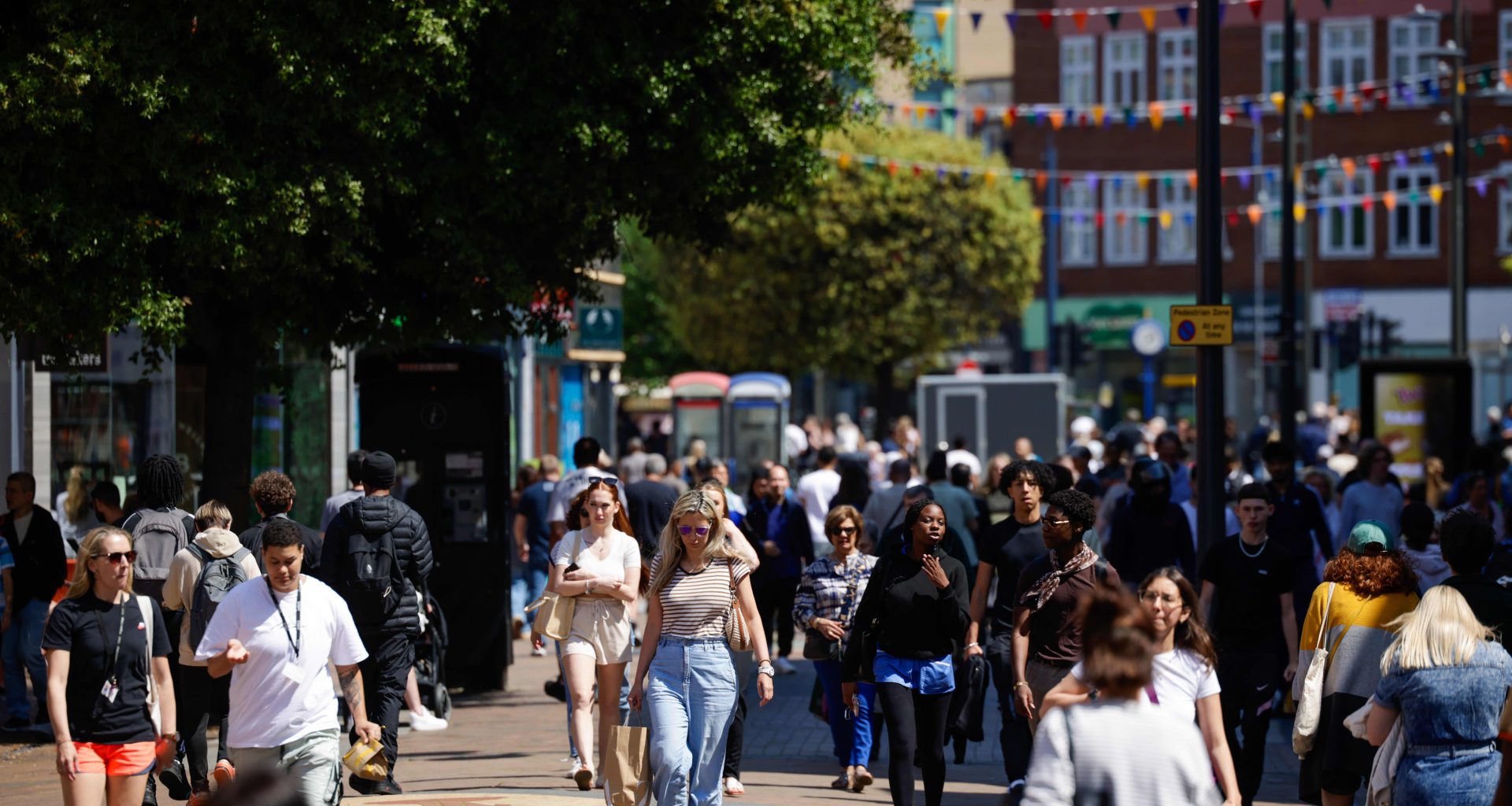Shoppers on the high street in the Kingston district of London, U.K.
Bloomberg | Bloomberg | Getty Images
U.K. inflation fell to the Bank of England’s target of 2.0% in May, the Office for National Statistics said Wednesday, in the last print of the key economic measure ahead of national elections in July.
The headline reading declined from 2.3% in April and came in line with the 2% expectations of economists polled by Reuters.
Sterling rose slightly shortly after the release, trading at $1.2721 by 7:33 a.m. London time.
Services inflation — which is closely watched by the BOE given its dominance within the U.K. economy and its reflection of domestically-generated price rises — was at 5.7% in May, versus 5.9% during the previous month.
Core inflation, excluding energy, food, alcohol and tobacco, dipped to 3.5% from 3.9% in April.
Falling food prices were the largest contributor to the declines, while car fuel costs continued to see an upward pressure, the ONS said.
Unseasonably bad weather led to the slowest increase in grocery sales in two years, new figures from U.K. market research firm Kantar showed Tuesday. Grocery sales rose 1.0% in the four weeks to June 9, marking the sixteenth consecutive monthly decline in food inflation, according to the index.
Bank of England decision in focus
While the latest print brings inflation in line with the BOE’s target, Azad Zangana, senior European economist and strategist at Schroders, cautioned that upward pressure could return in the second half of the year, as the U.K. phases out its energy price cap.
“From the third, fourth quarter onwards, you might start to see a bit more upward pressure coming through as the Bank of England has warned,” he told CNBC’s “Squawk Box.”
Zangana suggested that the Bank could even “surprise” the market with a rate cut this week, when it next meets on Thursday. The Bank is otherwise widely expected to hold rates steady at 5.25%, where they have been since August 2023 — back when inflation hovered around 7.9%.
Nevertheless, with inflation now falling closer to target, markets are now pricing in a near-term cut. All but two of 65 economists polled by Reuters last week said they expected an interest rate trim in August, while financial markets are pricing in such a curb in September.
The economic performance comes as the U.K. gears up for its general election on July 4, with polls pointing to a landslide victory for the opposition Labour party.
Read More: World News | Entertainment News | Celeb News
CNBC
